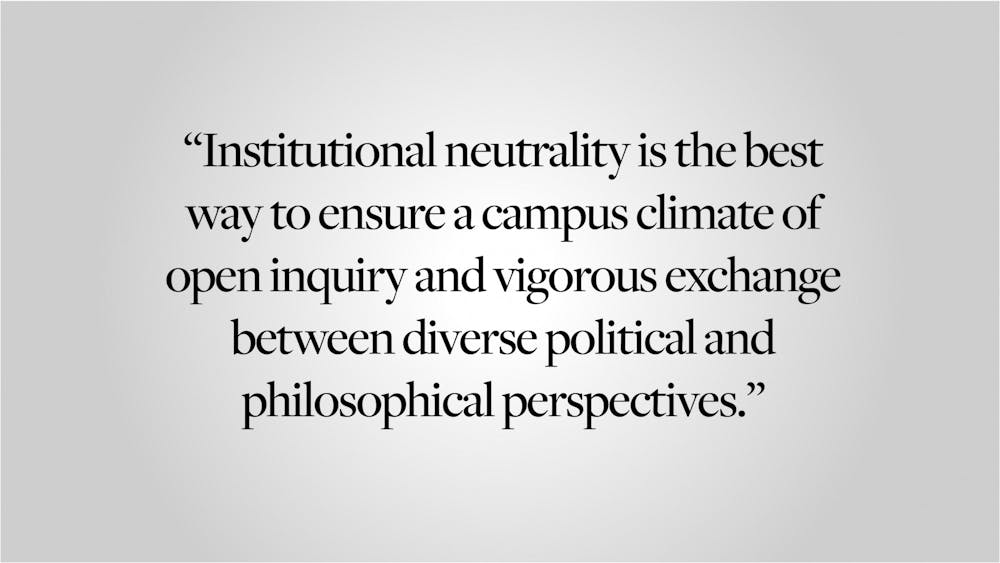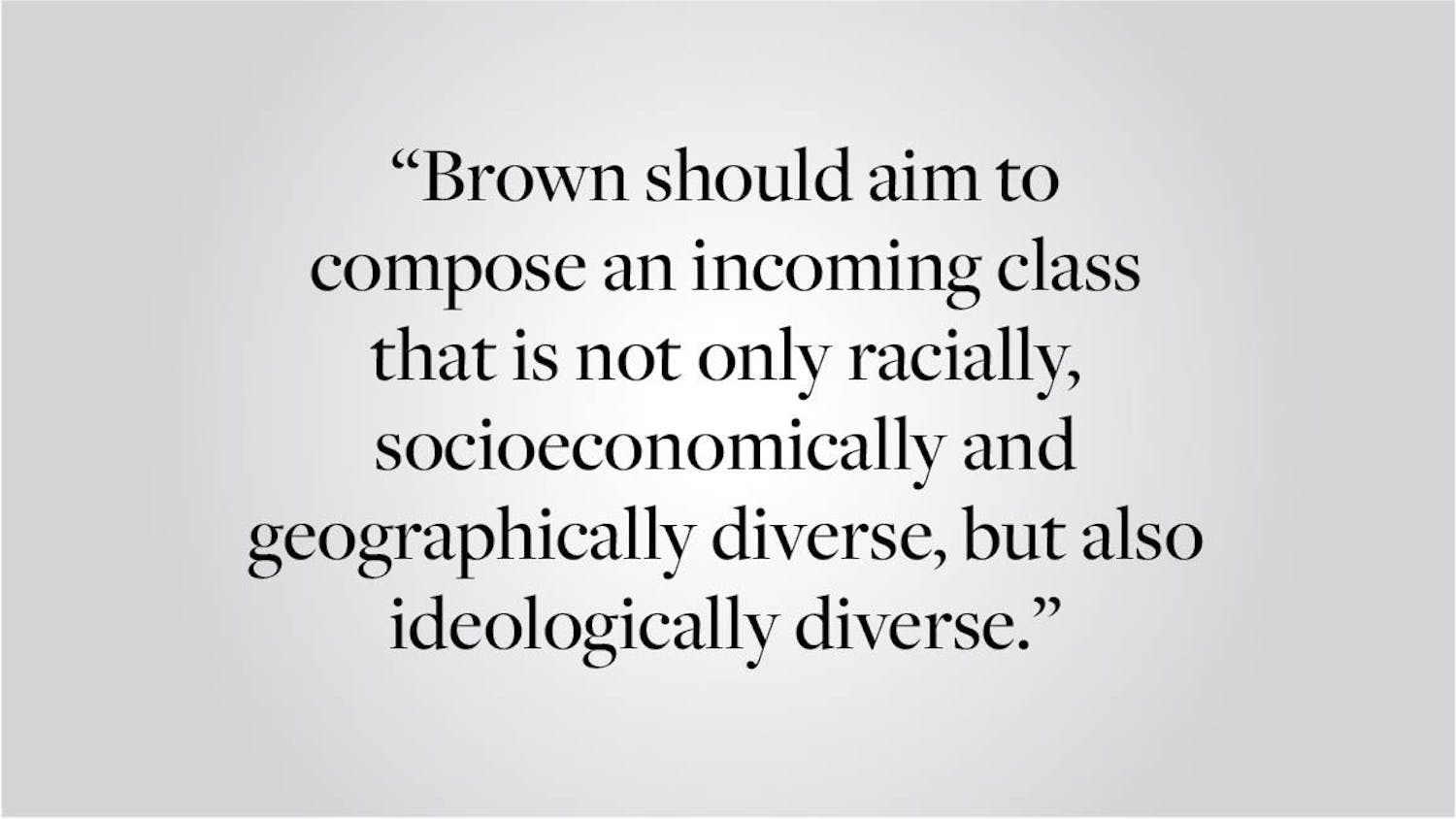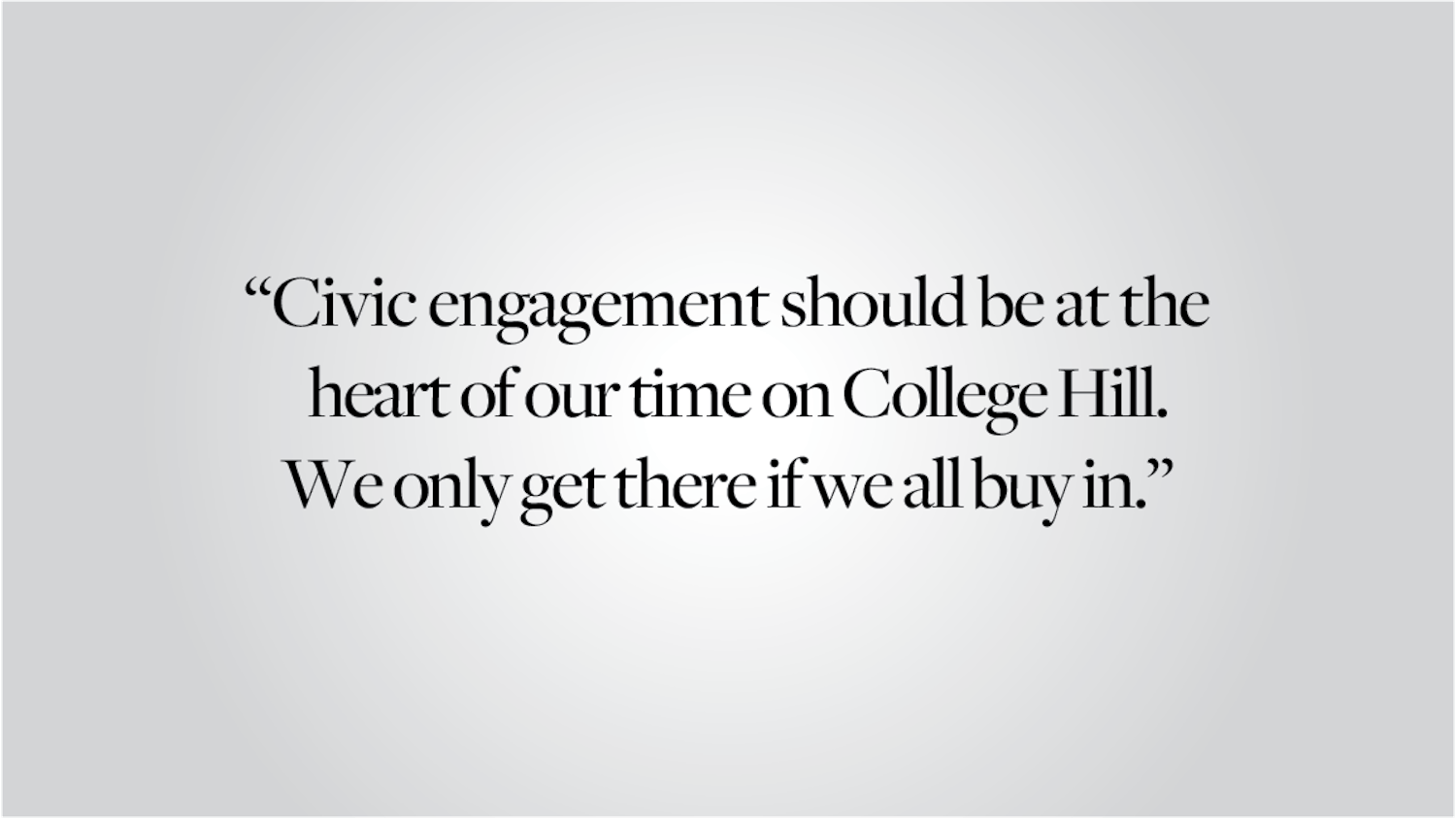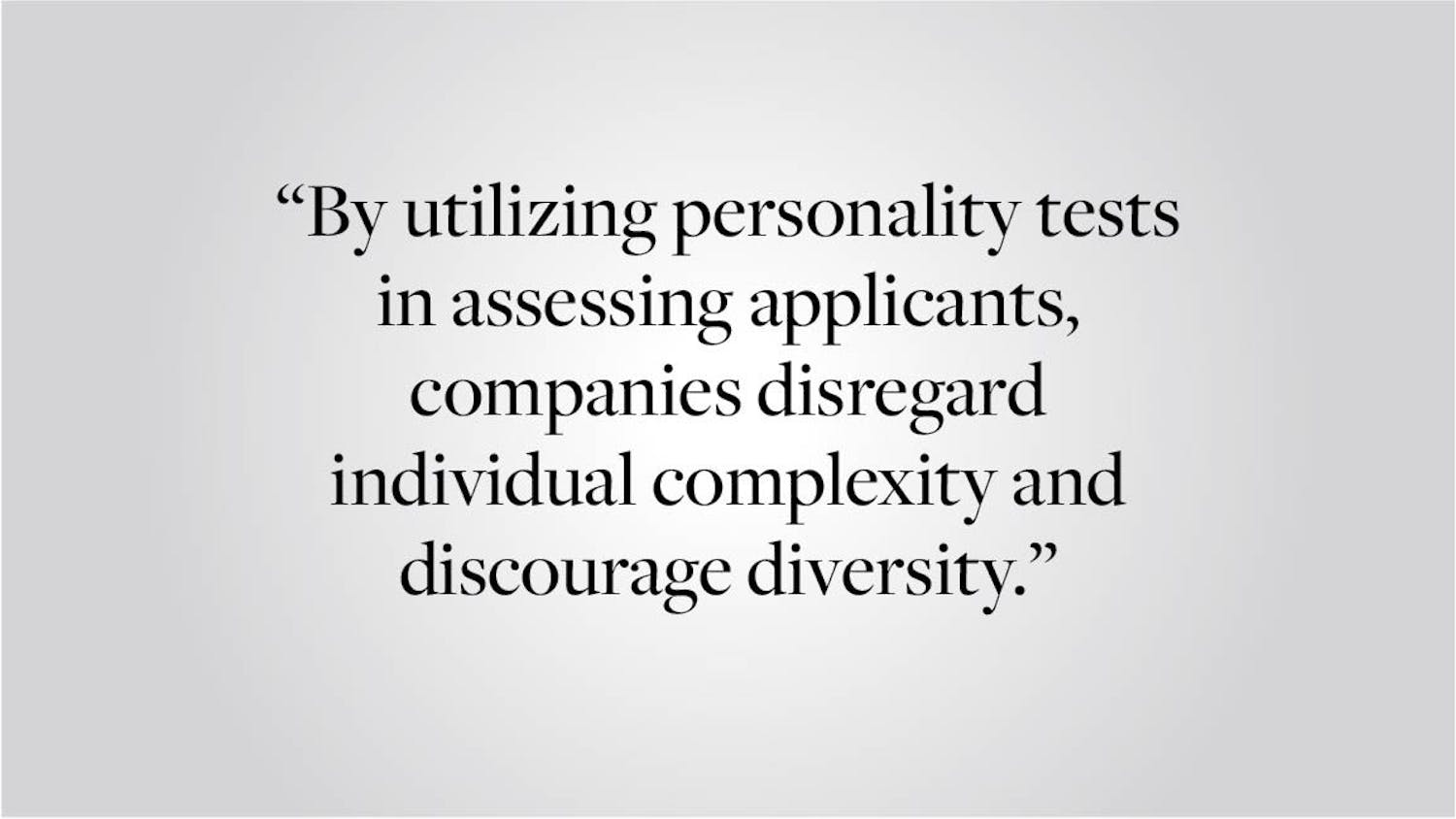Last month, my friend and former peer Thomas Bickel ’22 advocated for greater intellectual diversity at Brown. While I too consider viewpoint diversity vital for the academic health of the University, a different approach would produce better results. Bickel glosses over the most important aspect of the Kalven Report, the 1967 University of Chicago report affirming academic freedom: institutional neutrality. Institutional neutrality is the best way to ensure a campus climate of open inquiry and vigorous exchange between diverse political and philosophical perspectives.
In 2019, when Brown students voted for a referendum proposed by anti-Zionist Boycott, Divestment and Sanctions organization Brown Divest, President Christina Paxson P’19 expressed her firm opposition to divesting the University’s endowment from companies operating in Palestine, emphasizing the importance of University leadership maintaining impartiality. “Brown’s mission,” she wrote, “is to advance knowledge and understanding through research, analysis and debate. Its role is not to take sides on contested geopolitical issues.” Paxson was right — and the principle she upheld then should be extended now to help resolve hotly contested philosophical and political issues generally. To that end, Brown ought to adopt the University of Chicago’s Committee on Freedom of Expression statement and enshrine what University of Chicago Professor Richard Shweder terms the “No Action Option,” an institutional choice to stay out of political issues.
Institutional neutrality allows students and faculty alike to embark on free and rigorous inquiry into important and complex issues, both academic and political. Though neutrality is symbiotic with the viewpoint diversity that Bickel champions, it is a separate and crucial pillar of academic freedom: University leadership should refrain from taking views on behalf of the institution and instead remain neutral. In so doing, it would allow its students and faculty to speak for themselves without the pressure of conforming to or departing from the institutional position. Institutional neutrality is thus necessary to ensure that students and faculty, potentially vulnerable to implicit pressure from the administration, are provided space to voice their conscience and engage in rigorous inquiry that may well lead to more sound conclusions.
Thus, viewpoint diversity is logically reliant on institutional neutrality. Institutional neutrality fosters open inquiry and thus encourages viewpoint diversity. Brown should aim above all to produce thinking individuals who will have, by graduation, spent four years rigorously studying issues in the liberal arts and sciences. Such individuals will have the conceptual tools to deal with complex viewpoints and view the world in a more nuanced way.
Bickel makes three actionable suggestions. I agree wholeheartedly with one of them: The University must affirm the right of organizations like the Brown Federalist Society and other right-leaning organizations to bring in speakers who represent greater viewpoint diversity. Such support would expose students to a greater variety of views, which, as Bickel argues, is crucial. Students should enter Brown ready to learn, explore and endorse ideas that may be new but nevertheless resonate with them, no matter from where they come. Engagement with a variety of ideas is a must; an institutionally neutral university will coordinate evenhandedly with student groups of various philosophical and political stripes to bring their chosen invited speakers to campus and ensure that students can engage with a myriad of views that otherwise might be missing from campus.
I sympathize with but must qualify another of Bickel’s suggestions: to intentionally hire conservative faculty. My experiences with John Tomasi, former professor of natural theology and political science, and Glenn Loury, professor of the social sciences and economics, were hugely beneficial to my development, but not because of their conservative ideologies per se. Rather, it was because they are brilliant thinkers who, in the classroom and in their research, acknowledged the existence of and exposed their students to a wide variety of valid and important ideas, left, right or otherwise. We need, first and foremost, professors to embrace this spirit — that is, the crucial value of constructive disagreement within the classroom. Professors should champion viewpoint diversity in the classroom by exposing their students to the full gamut of views; this does not necessitate that they themselves are conservative or libertarian. Increased political and philosophical diversity in the humanities and social sciences faculty would likely benefit the University, but the primary criterion for hiring faculty should be the quality of their research and their ability to teach — not their political persuasion.
I am especially hesitant about Bickel’s final suggestion: that the University should intentionally matriculate students of diverse political backgrounds. While I attended Brown, I personally benefited tremendously from encountering students with a wide range of backgrounds and perspectives — students from different socioeconomic classes, from different countries and with different political views. My interactions with these students strengthened my perspectives on many issues, political and otherwise, encouraging me to become a more nuanced thinker. I appreciate the importance Bickel places on the need for “stress-test(ing)” the views of liberal students, but I am not sure whether his proposed solutions would make a meaningful difference in practice, or, for that matter, whether intentionally crafting an ideologically diverse class would not unduly privilege ideologically diverse candidates over those with other valuable qualities. More importantly, such an effort misunderstands the issue: Young people tend to be progressive. Institutions of higher education must provide their students with the tools to engage thoughtfully with each other and the world. This, rather than students’ political ideologies upon matriculation, is most important.
Students are young, with views that will likely develop over time. Faculty are hired to conduct innovative research and to foster the fledgling minds of the nation’s students. Brown’s leadership must adopt the Chicago Principles and the No Action Option of institutional neutrality. Doing so would allow a diversity of viewpoints to flourish and more fully accomplish the purpose of a university: to generate original and wide-ranging research, and to produce thoughtful students of myriad philosophical and political views by fostering their curiosity.
David Sacks ’22 can be reached at david_sacks@alumni.brown.edu. Please send responses to this opinion to letters@browndailyherald.com and other op-eds to opinions@browndailyherald.com.





